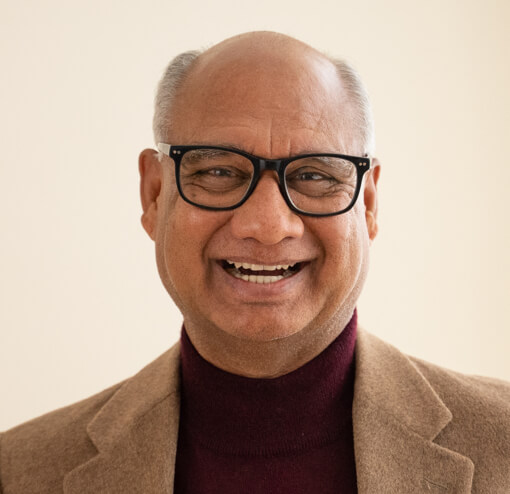Q: I’ve never been satisfied with the religion I was brought up with, so I’ve been visiting temples and sacred sites in India in search of a deep spiritual experience. But I have trouble connecting with the rituals and statues of gods and goddess in those places. Am I more likely to find God by going to the East or by staying with my own culture here in the West?
A: First of all, shatter your expectation that God is more readily found in one part of the world than in another. The solution to finding God lies neither in the East nor in the West, nor does the problem lie either with religion or with God. The problem lies in the interpretation of God by different religious groups and their unbending belief that theirs is the only correct interpretation.
You wonder which culture holds the key that opens the door to God.
You have not found your religion satisfying. The reason for your dissatisfaction is your inability to see a distinction between religious belief and spiritual experience. When you became inspired to gain a direct spiritual experience, you shunned your religious orientation and went to India in search of God. There you became disappointed upon seeing the statues of gods and goddesses in the temples. This is a clear indication that you still believe, figuratively speaking, that God is hidden in a religious box. When you found the box passed on by your family and culture empty, you imagined the box invented in the Orient would be full and fulfilling. It wasn’t. Now you are wondering which culture holds the key that will open the door to God.
The question you are asking is a perennial one. For untold ages, people have been either running after God or trying to abandon God, without succeeding in accomplishing either goal. Only those who come to realize that God is a reality that pervades both our inner and outer world, and focus their energies on experiencing that reality, succeed in “finding” God.

Your dissatisfaction with institutionalized religion and the idea of God promoted by religious institutions is the by-product of your inherent desire to become connected to a higher reality—one that at once encompasses and transcends all the powers and privileges you possess or hope to possess. You are seeking lasting happiness and you understand that it does not reside in statutes of gods and goddesses. What you may not yet understand is that lasting happiness lies within you. It is a state of consciousness, which dawns only in a peaceful mind and purified heart. As you discover your connection with this higher reality (which some call God), you will become strong, clear, and energized. You will be free—both from the fear of losing what you have and from anxiety about obtaining what you do not have. You will be at peace.
As you discover your connection with the higher reality, you will become strong, clear, and energized.
Churches, temples, mosques, mantras, yantras, mandalas, rituals, meditative techniques, and gods and goddesses are means for helping us find our inner connection. How successful we will be in using these means to help us make this inner connection depends on the condition of our mind. A disturbed, stupefied, and confused mind fails to make good use of the wonderful gifts—churches, temples, mantras, meditative or ritualistic practices—that the torchbearers of humanity have provided for us. That is why in the yoga tradition we are constantly and consistently reminded about the need for purifying our mind, making it one-pointed, and turning it inward.
As you discover your inner connection in the bright light of your inwardly turned mind, you begin to realize that the connection with the divinity you are seeking can be found everywhere—East, West, church, temple, inside religion or outside of it. As soon as you know this truth, you will begin to appreciate what is good in your own cultural and religious background. At the same time, you will also be able to embrace the wisdom available in other traditions.
